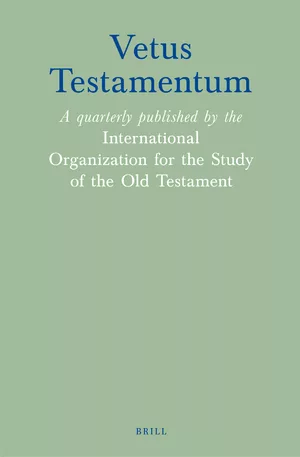https://doi.org/10.1163/15685330-12341402
최근 학계에서는 집회서의 그리스어 번역본이 단어 유희(word-play)와 그리스어 내적 암시(inner-Greek allusion)를 미묘하게 사용하고 있다는 점이 인식되어 왔다. 그러한 사례 중 하나인 집회서 34장 9-13절의 방랑하는 사람 이야기는 두 가지 유형의 사람, 즉 긍정적인 배움을 위해 방랑하는 사람과 길을 잃고 죽음의 위험에 처한 사람에 대한 서술임을 보여줄 수 있다. 따라서 이 이야기는 새로운 헬레니즘 제국에서 여행의 자유를 누린 저자의 개인적인 경험이 아니라, 그리스 전통에서 발전한 두 가지 유형의 오디세우스를 모델로 한 도덕적인 이야기이다. 이는 번역자가 담론 수준에서 원문을 정교하게 다듬었음을 보여주며, 그의 교육 배경을 암시한다. 또한 이는 집회서 내 해당 단위의 더 큰 구조에 영향을 미치고, 벤 시라의 개인적 전기라는 생각에 더욱 의문을 제기한다.
It has been recognized in recent scholarship that the Greek translation of Sirach is subtle in its use of word-play and inner-Greek allusion. One such case, the story of the wandering man in Sir (31)34:9-13, can be shown to be a narration of two types of person, the one who wanders for positive learning and the one who errs and is in danger of death. It is thus not the personal experience of the author who has the freedom to travel in the new Hellenistic empires, but a moral tale modelled upon the two types of Odysseus that developed in the Greek tradition. This demonstrates the crafting of the source by the translator on the discourse level and hints at his educational background. It also has consequences for the larger structure of the unit in Sirach and further undermines the idea of a personal biography of Ben Sira.







